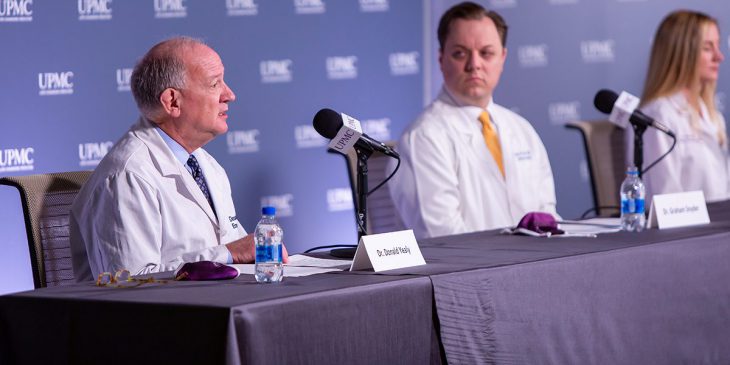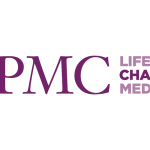At a press briefing today, UPMC leaders shared the latest findings from UPMC’s ongoing “learning while doing” COVID-19 trials, including the first and largest clinical study in the world to compare different methods of administering monoclonal antibody treatment. They also discussed plans to study the newly discovered Omicron variant.
Dr. Erin McCreary, director of antimicrobial stewardship innovation and an infectious diseases pharmacist at UPMC, shared data from UPMC patients demonstrating that giving Regeneron’s monoclonal antibody treatment to outpatients with mild to moderate COVID-19 through injections under the skin – or, subcutaneously – was essentially as effective as giving it intravenously. By giving subcutaneous injections, UPMC more than doubled the number of patients treated with this life-saving medication.
For example, during a COVID-19 surge this fall, at most of its outpatient infusion centers, UPMC switched administration of monoclonal antibodies from infusions to injections, which maximized the number of patients who could be treated.
McCreary urged other health care providers to consider offering subcutaneous injections to expand available locations for patients to receive treatment, since injections are easier to give than IV infusions.
Dr. Graham Snyder, medical director of infection prevention and hospital epidemiology at UPMC, explained how UPMC and Pitt’s robust COVID-19 testing and adaptive clinical infrastructure will allow the health system to quickly provide guidance on the Omicron variant.
“Our data analytics team has tracked COVID-19 trends with each variant and surge and will continue tracking Omicron when it arrives in our region,” Snyder said. “We can use the strength of our healthcare databases to know who is most vulnerable to infection and complications, and how well treatments work.”
Dr. Donald Yealy, UPMC’s chief medical officer, addressed UPMC’s hospital capacity and growing COVID-19 inpatient volume. He noted that more people are returning to hospitals for other important health issues too.
Yealy added that seasonal flu cases are rapidly climbing, which could mean busy emergency departments may become even more crowded with patients suffering from the flu and COVID-19.
“We have developed more advanced ways to provide care for people outside of the hospital setting,” Yealy said. “We know that people want to recover at home, and they often recover better there or another setting outside of a hospital.”
UPMC’s experts emphasized the proven ways to stay safe including wearing masks, getting vaccinated against COVID-19 and the flu, and getting tested for COVID-19 and staying home if you feel ill.









